Travel Market Insights
Travel Loyalty Programs Market to Reach USD 88.7 Bn by 2034,
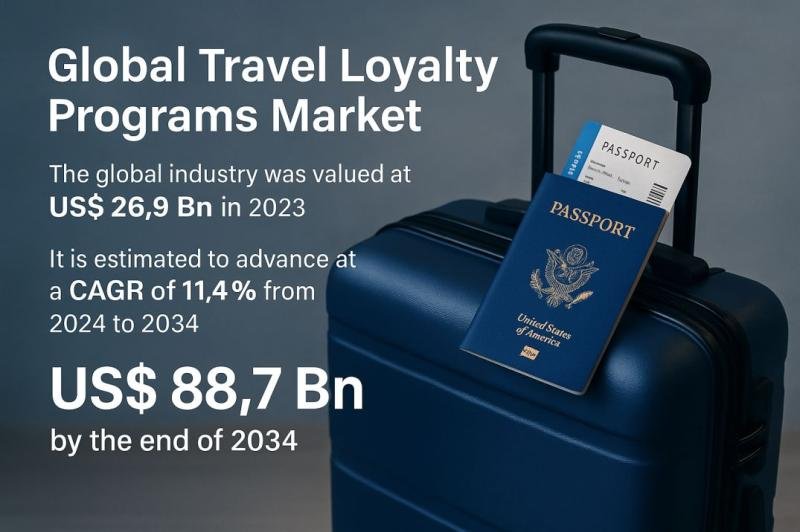
The global travel loyalty programs market is set to experience remarkable expansion over the next decade, driven by digital transformation, consumer demand for personalized travel experiences, and fierce competition among airlines and hospitality providers. According to the latest industry research, the market was valued at US$ 26.9 billion in 2023 and is projected to grow at a CAGR of 11.4% from 2024 to 2034, reaching a valuation of US$ 88.7 billion by the end of the forecast period.
Access key findings and insights from our Report in this sample – https://www.transparencymarketresearch.com/sample/sample.php?flag=S&rep_id=86307
Market Overview
Travel loyalty programs, once simple reward systems, have evolved into complex, data-driven ecosystems designed to maximize customer retention and engagement. These programs are now crucial components of brand strategies in the travel and hospitality industry. Airlines, hotels, and digital travel platforms are leveraging loyalty programs to collect valuable customer data, deliver tailored experiences, and foster long-term brand relationships. As the travel industry continues to rebound from pandemic-related disruptions, loyalty programs are increasingly viewed as key differentiators in competitive markets.
Market Size and Growth
The travel loyalty programs market is experiencing exponential growth, spurred by a confluence of factors including increased global travel, a shift toward experiential rewards, and innovations in customer relationship management (CRM). The market’s value is anticipated to soar from US$ 26.9 billion in 2023 to US$ 88.7 billion in 2034, representing a compound annual growth rate (CAGR) of 11.4%. The surge in millennial and Gen Z travelers-who favor brands offering rewards, exclusivity, and mobile-first experiences-has further accelerated program adoption. Additionally, advancements in AI, predictive analytics, and blockchain are optimizing the operational and strategic efficiency of loyalty programs.
Market Segmentation
The market can be segmented based on type, end-user, and distribution channel. By type, loyalty programs are broadly categorized into point-based, tiered, and subscription-based models. Point-based systems remain dominant due to their familiarity and ease of use, while tiered programs are gaining traction by offering status-driven incentives. Subscription-based loyalty models, which offer immediate benefits for a recurring fee, are witnessing rapid adoption, especially among high-frequency travelers.
By end-user, the market is segmented into airlines, hotels, and online travel agencies (OTAs). The airline sector continues to hold a major share, driven by frequent flyer programs that offer a mix of miles, upgrades, and co-branded credit card partnerships. The hotel segment is growing fast as brands aim to deliver hyper-personalized guest experiences. OTAs are investing heavily in loyalty integration to keep pace with direct booking incentives from hotels and airlines.
Regional Analysis
Geographically, North America dominates the travel loyalty programs market, supported by well-established travel infrastructure, high disposable incomes, and a mature loyalty culture. The U.S. remains the largest market, with major players like Marriott, Delta Air Lines, and American Airlines offering highly sophisticated loyalty ecosystems.
Europe holds the second-largest market share, particularly in countries such as the U.K., Germany, and France, where digital transformation and consumer travel patterns are driving demand. The Asia-Pacific region, however, is the fastest-growing market, bolstered by increasing air travel, a booming tourism industry in countries like China and India, and mobile-first consumer behavior.
Emerging markets in Latin America and Africa are also showing potential, with rising travel infrastructure investment and a growing middle class expected to fuel market penetration in these regions.
Access our report for a comprehensive look at key insights – https://www.transparencymarketresearch.com/travel-loyalty-programs-market.html
Market Drivers and Challenges
Drivers:
Digital Integration: Technological advancements such as mobile apps, CRM platforms, and AI-powered personalization are revolutionizing loyalty programs.
Rising Travel Frequency: Post-pandemic recovery and pent-up demand for travel are fueling program participation.
Strategic Partnerships: Cross-industry collaborations (e.g., airlines with credit card companies) are expanding program value.
Experience Over Material Rewards: Consumers now prioritize exclusive experiences over physical goods, prompting brands to diversify offerings.
Challenges:
Data Privacy Concerns: Growing awareness of data protection and regulations like GDPR may limit data collection capabilities.
Program Saturation: With numerous programs available, customer fatigue and lack of differentiation can reduce engagement.
Economic Uncertainty: Inflation and fluctuating travel costs can impact discretionary travel spending and loyalty program participation.
Market Trends
Key trends shaping the market include the gamification of loyalty programs, increasing use of machine learning for reward optimization, and the rise of blockchain for secure point tracking and transferability. Furthermore, brands are integrating eco-conscious rewards to attract environmentally aware consumers. The convergence of mobile commerce and digital wallets has also simplified point redemption, making loyalty programs more accessible and user-friendly.
Competitive Landscape
The travel loyalty programs market is fiercely competitive, with leading players constantly evolving their offerings to capture consumer attention and spending. Notable companies include:
Accor S.A.
Hyatt Corporation
Marriott International, Inc.
Wyndham Hotel Group, LLC
Choice Hotels International, Inc.
InterContinental Hotels Group
Expedia, Inc.
Alaska Airlines, Inc.
Delta Air Lines, Inc.
American Airlines
These firms are heavily investing in technology, partnerships, and customer experience to enhance loyalty program effectiveness. Loyalty ecosystems have expanded beyond traditional travel, encompassing dining, shopping, wellness, and entertainment rewards.
Buy this Premium Research Report for exclusive, in-depth insights – https://www.transparencymarketresearch.com/checkout.php?rep_id=86307<ype=S
Future Outlook
The next decade promises a dynamic future for travel loyalty programs. As personalization, real-time engagement, and seamless omnichannel experiences become non-negotiable, brands will be expected to deliver highly responsive and emotionally resonant loyalty strategies. Integration with AI and predictive analytics will allow companies to anticipate customer needs, while blockchain and NFTs may redefine reward ownership and portability. Moreover, sustainability-driven loyalty programs will emerge as travel consumers demand greener options. By 2034, the global market will likely reflect not only robust financial growth but also deeper consumer-brand relationships rooted in loyalty and trust.
More Trending Reports by Transparency Market Research –
Sun Lounger Market – https://www.transparencymarketresearch.com/sun-lounger-market.html
Glass Tableware Market – https://www.transparencymarketresearch.com/glass-tableware-market.html
Middle East Second-hand Luxury Goods Market – https://www.transparencymarketresearch.com/middle-east-second-hand-luxury-goods-market.html
Smart Kitchen Appliances Market – https://www.transparencymarketresearch.com/smart-kitchen-appliances-market.html
Indoor Space Heater Market – https://www.transparencymarketresearch.com/indoor-space-heater-market.html
About Transparency Market Research
Transparency Market Research, a global market research company registered at Wilmington, Delaware, United States, provides custom research and consulting services. Our exclusive blend of quantitative forecasting and trends analysis provides forward-looking insights for thousands of decision makers. Our experienced team of Analysts, Researchers, and Consultants use proprietary data sources and various tools & techniques to gather and analyses information.
Our data repository is continuously updated and revised by a team of research experts, so that it always reflects the latest trends and information. With a broad research and analysis capability, Transparency Market Research employs rigorous primary and secondary research techniques in developing distinctive data sets and research material for business reports.
Contact:
Transparency Market Research Inc.
CORPORATE HEADQUARTER DOWNTOWN,
1000 N. West Street,
Suite 1200, Wilmington, Delaware 19801 USA
Tel: +1-518-618-1030
USA – Canada Toll Free: 866-552-3453
Website: https://www.transparencymarketresearch.com
Email: sales@transparencymarketresearch.com
This release was published on openPR.
Travel Market Insights
Delta Says It Will Not Use AI to Target Customers
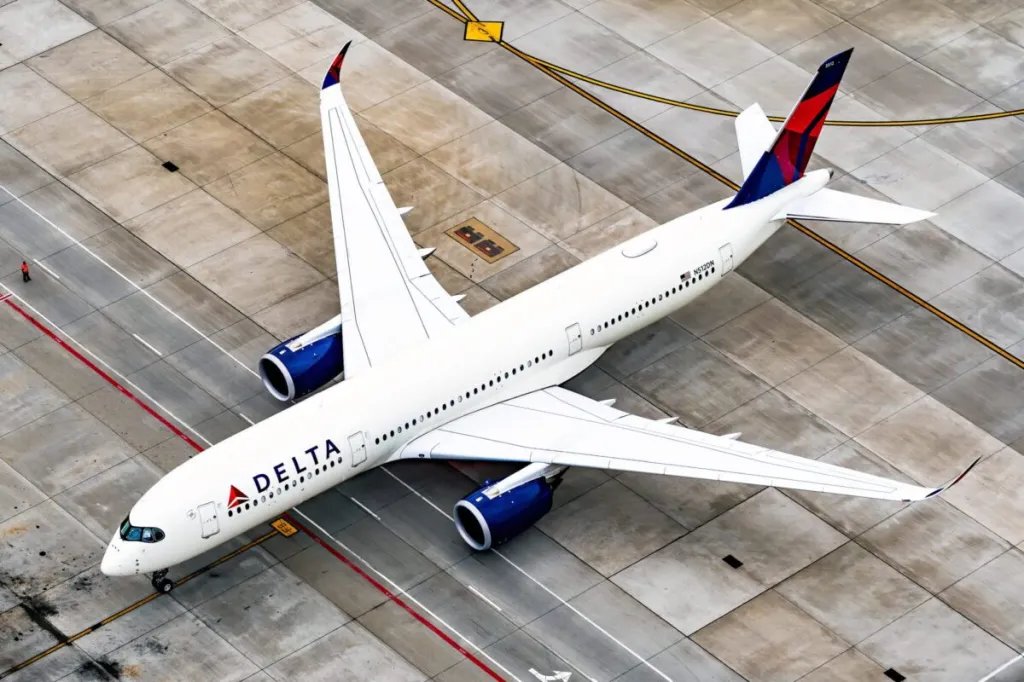
Key Points
- Delta Air Lines clarified it does not use AI to set individualized airfares based on personal data, following criticism from lawmakers.
- The airline uses AI, via a partnership with Fetcherr, to assist in dynamic pricing for a growing portion of its domestic flights, but claims all fares are determined by market dynamics and are publicly available.
- Lawmakers and officials have expressed concerns about potential predatory or ‘surveillance’ pricing, prompting Delta to stress its commitment to fair, competitive pricing and data privacy.
Summary
Delta Air Lines has publicly stated that it does not use AI to set individualized prices based on personal customer data, responding to recent criticism and inquiries from U.S. lawmakers. The airline acknowledged using AI technology, through a partnership with Fetcherr, to assist analysts in setting fares for a portion of its domestic flights, with plans to expand this use. However, Delta emphasized that fares are determined by market competition, not personal data, and all prices are transparently published, aiming to dispel concerns about privacy and potential predatory pricing.
Travel Market Insights
U.S. Dollar Slide Hurts Accor, Minor, and Meliá

Some of the world’s largest hotel companies saw their earnings dented by currency swings in the first half of 2025, as euro and baht-reporting groups absorbed losses while U.S.-based chains appeared largely insulated from the volatility.
Accor, Meliá Hotels, and Minor International all reported currency-related losses that offset solid operational performance. Meanwhile, U.S.-based Hilton and Wyndham, which report in dollars, did not mention foreign exchange impacts in their earnings calls and appeared shielded from the same pressures.
The U.S. dollar index dropped 10.8% in the first half of 2025 following the Trump administration’s April tariffs and public clashes with the Federal Reserve. The resulting investor pullback caused the dollar to weaken sharply against the euro, baht, and other currencies.
Accor: Currency Among Its Biggest Headwinds
Paris-based Accor repo
Travel Market Insights
Winners, Losers, and Lots of Premium Seats: Europe’s Airline Scorecard
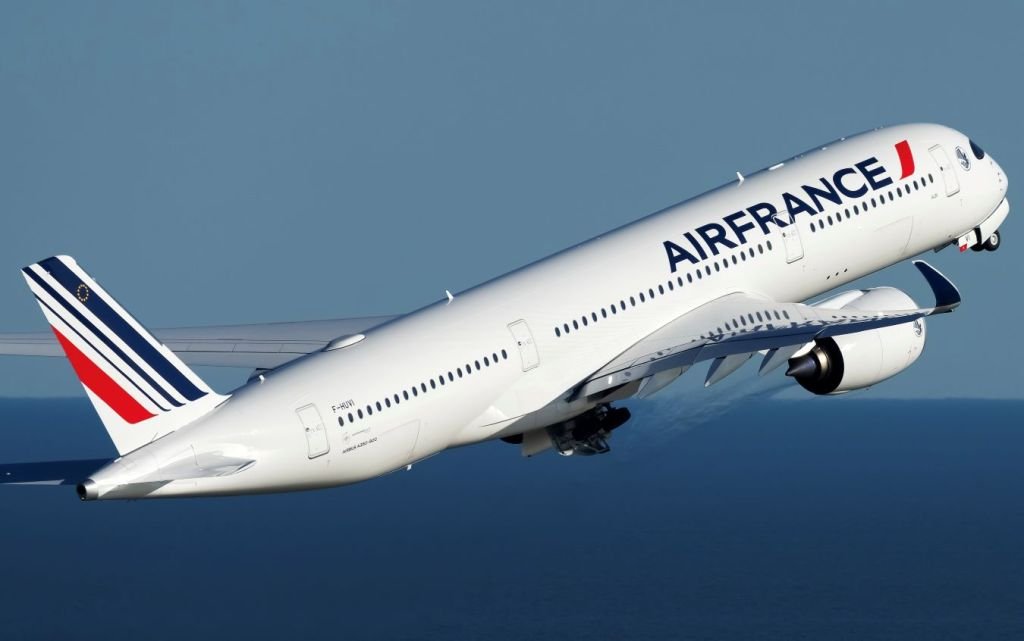
Skift Take: Premium cabins still drive profits, but it's the low-cost threat that keeps Europe's legacy carriers up at night.
-

 Brand Stories2 weeks ago
Brand Stories2 weeks agoBloom Hotels: A Modern Vision of Hospitality Redefining Travel
-

 Brand Stories7 days ago
Brand Stories7 days agoCheQin.ai sets a new standard for hotel booking with its AI capabilities: empowering travellers to bargain, choose the best, and book with clarity.
-

 Destinations & Things To Do2 weeks ago
Destinations & Things To Do2 weeks agoUntouched Destinations: Stunning Hidden Gems You Must Visit
-

 Destinations & Things To Do7 days ago
Destinations & Things To Do7 days agoThis Hidden Beach in India Glows at Night-But Only in One Secret Season
-

 AI in Travel2 weeks ago
AI in Travel2 weeks agoAI Travel Revolution: Must-Have Guide to the Best Experience
-

 Brand Stories4 weeks ago
Brand Stories4 weeks agoVoice AI Startup ElevenLabs Plans to Add Hubs Around the World
-

 Brand Stories3 weeks ago
Brand Stories3 weeks agoHow Elon Musk’s rogue Grok chatbot became a cautionary AI tale
-

 Asia Travel Pulse4 weeks ago
Asia Travel Pulse4 weeks agoLooking For Adventure In Asia? Here Are 7 Epic Destinations You Need To Experience At Least Once – Zee News
-

 AI in Travel4 weeks ago
AI in Travel4 weeks ago‘Will AI take my job?’ A trip to a Beijing fortune-telling bar to see what lies ahead | China
-

 Brand Stories4 weeks ago
Brand Stories4 weeks agoChatGPT — the last of the great romantics





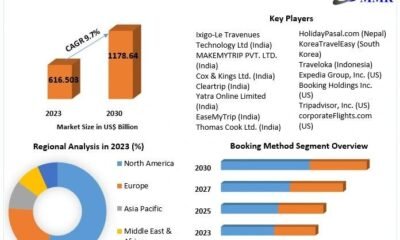

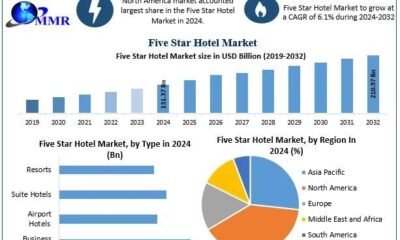





You must be logged in to post a comment Login